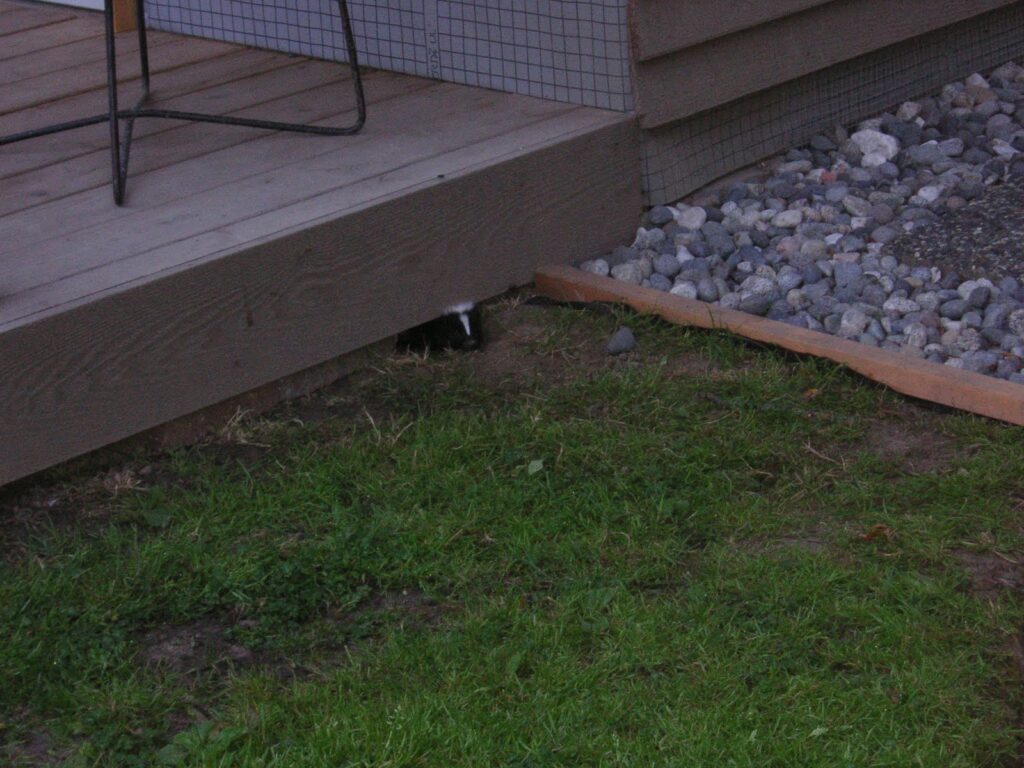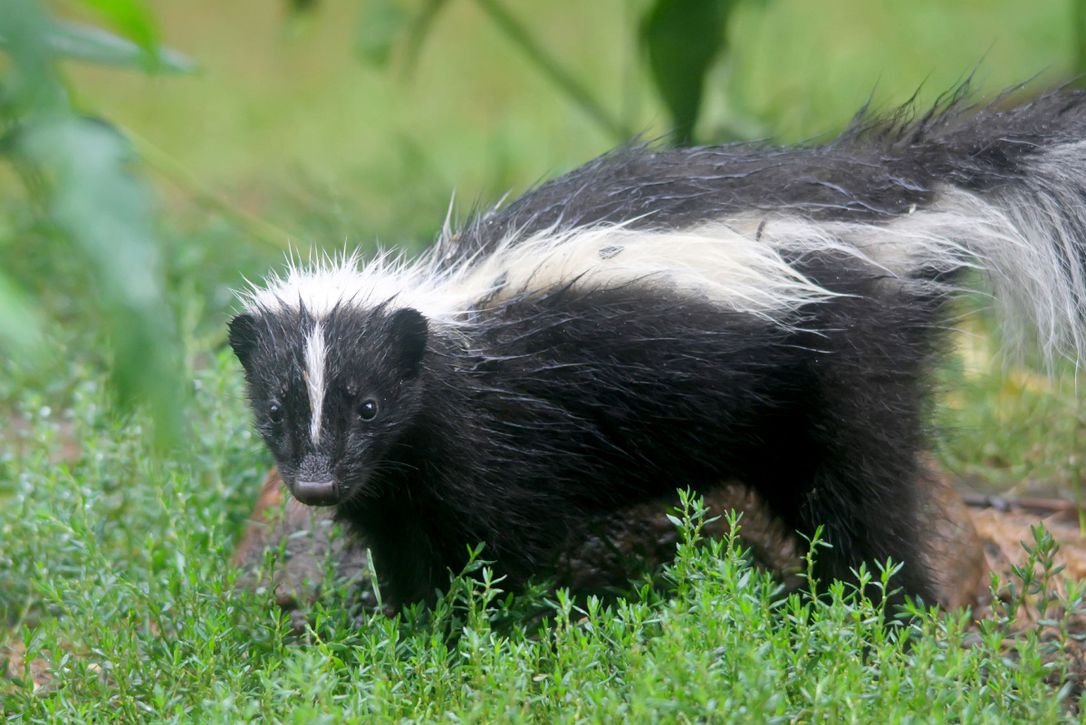Grow Strong, Healthy Grass
To make it as difficult as possible for skunks to dig up your turf, it's critical that you help the grass's roots grow to be maximally resilient. The primary way to accomplish this is to stay on top of key maintenance practices, including seeding, fertilizing, watering, and aerating your yard. Fertilizer and aeration ensure that the plant gets all of the nutrients it needs, while seeds and water help grass to overcome adverse conditions from season to season. Depending on your circumstances, you may need to aerate and seed your yard once per year. Fertilizer, on the other hand, is often applied several times per year. Water may be required daily. When you grow a healthy lawn using these tips, skunks may have a much harder time pulling up the roots. Similarly, pinning down chicken wire over affected patches may inconvenience the skunks. Remember to adjust the wire a couple of times per week so roots don't start growing over it.Eliminate Preferred Food Sources
Although skunks are happy to eat a wide range of foods, grubs are a common choice. Thus, if skunks seem to love your yard, it may be because they have found a plentiful food supply there. If you dig into the ground a bit and can see grubs, these creepy crawlers may be the main source of the problem. Grubs may also cause small patches or even large sections of your yard to turn brown. Because it's tricky to get rid of fully grown grub larvae, it's important to take preventative steps in July and August to ensure the coming year will not bring a large grub population. Namely, homeowners can apply a nematode treatment to wet soil. The nematodes, a kind of roundworm, will then use young grub larvae as hosts, eventually killing the larvae and using them as a food source.



